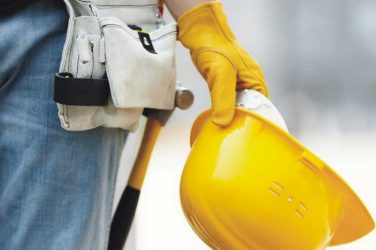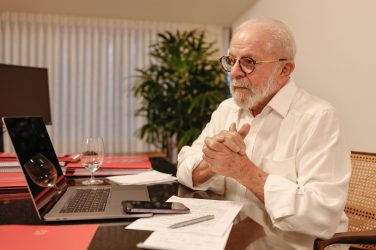 In her first speech as ambassador of the Criança Feliz (Happy Child) program, Brazil’s First Lady Marcela Temer said this Wednesday (October 5), during the ceremony to launch the program, that care for Brazilian children is important for the country’s development.
In her first speech as ambassador of the Criança Feliz (Happy Child) program, Brazil’s First Lady Marcela Temer said this Wednesday (October 5), during the ceremony to launch the program, that care for Brazilian children is important for the country’s development.
With an initial budget of US$ 93 million, the initiative was created by the Ministry of Social Development (MDS), stimulating the full development of children.
According to the MDS, the program is aimed at pregnant women, children up to three years old and family members of the Bolsa Família conditional cash transfer program, children up to six years old who receive the Continuous Cash Benefit and their families, and children up to six years old away from family life because of protective measures.
“Each Brazilian person, since pregnancy, is important for the development of Brazil. I will work as a volunteer to raise people’s awareness and mobilize civil society for actions that can guarantee improvements in people’s lives,” said Marcela Temer.

According to her, the main purpose of Criança Feliz is to provide care for children and stimulate their development during early childhood.
The teams working in the program will visit families’ houses for monitoring. Formed by professionals from areas like health, education, social work, human rights, and culture, these teams will be responsible for providing information to the members of the program in order to strengthen family and community ties.
In a statement, President Michel Temer noted it will be a task in which both the government and the public enterprise should join forces.
“What we’re doing today is caring for the well-being of our society, especially for its most fragile segments, among them those in extreme poverty who benefit from Bolsa Família, a program that has been successful and should remain so,” Temer said.
“We’ve increased Bolsa Família’s benefits, which hadn’t been done for two years. We went beyond. Criança Feliz aims to provide support for children under formation. Some eight to ten years ago, science started to realize that a child’s personality is formed from the ages of zero to three, so this care is necessary,” he added.
68% Do Not Trust Temer
President Michel Temer’s administration was rated bad or terrible by 39% of the Brazilians heard as part of a CNI/Ibope survey in September.
The percentage of people who regard his government as OK totals 34%, and those who describe it as great or good add up to 14%. Twelve percent do not know or did not answer. The figures were released today by the National Industry Confederation (CNI).
CNI/Ibope’s latest survey, conducted in June, evaluated Temer’s then interim government after a little more than a month into his administration.
The acting government was viewed as bad or terrible by 39% of the population, good or great by 13% and OK by 36%. Those who did not know or did not answer amounted to 13%.
Of the respondents, 28% approve of the way President Temer rules, against 55% who disapprove of it. In the previous study, these values stood at 31% and 53%, respectively. As for confidence, 26% trust in the president, and 68% do not, compared to the previous 27% and 66%.
The survey heard 2,002 people in 143 municipalities between September 20 and 25, and has a margin of error of plus or minus two percentage points.
Positive for Government
Temer described the result of the municipal elections this past Sunday as “positive” for the parties in the government’s parliamentary base. The allied parties ensured a “splendid victory” in the race for mayoralties, which strengthens his support in pushing through fiscal adjustment measures in Congress, he said.
National head of the Brazilian Democratic Movement Party (PMDB), Temer saw his party secure the largest number of mayoralties in the country. The Brazilian Social Democracy Party (PSDB), the PMDB’s number one ally, experienced the highest growth compared to the 2012 elections.
Smaller parties, which also add up to a significant amount of seats on the government’s side in the lower house, also elected more mayors than it did four years ago.
“The parties in the government’s base ensured a splendid victory in the elections all across Brazil. This strengthens our parliamentary base, particularly at a moment when we have to approve something that’s crucial to the recovery of employment in the country, namely the spending cap,” the president argued.
Temer reiterated he is to uphold his decision, observed in the first round of the elections, not take part in any campaign.
The statements were made by the president still at the airport in Buenos Aires. Temer visited Argentina and Paraguay with the purpose of expanding commercial ties between Brazil and the two countries.
ABr









